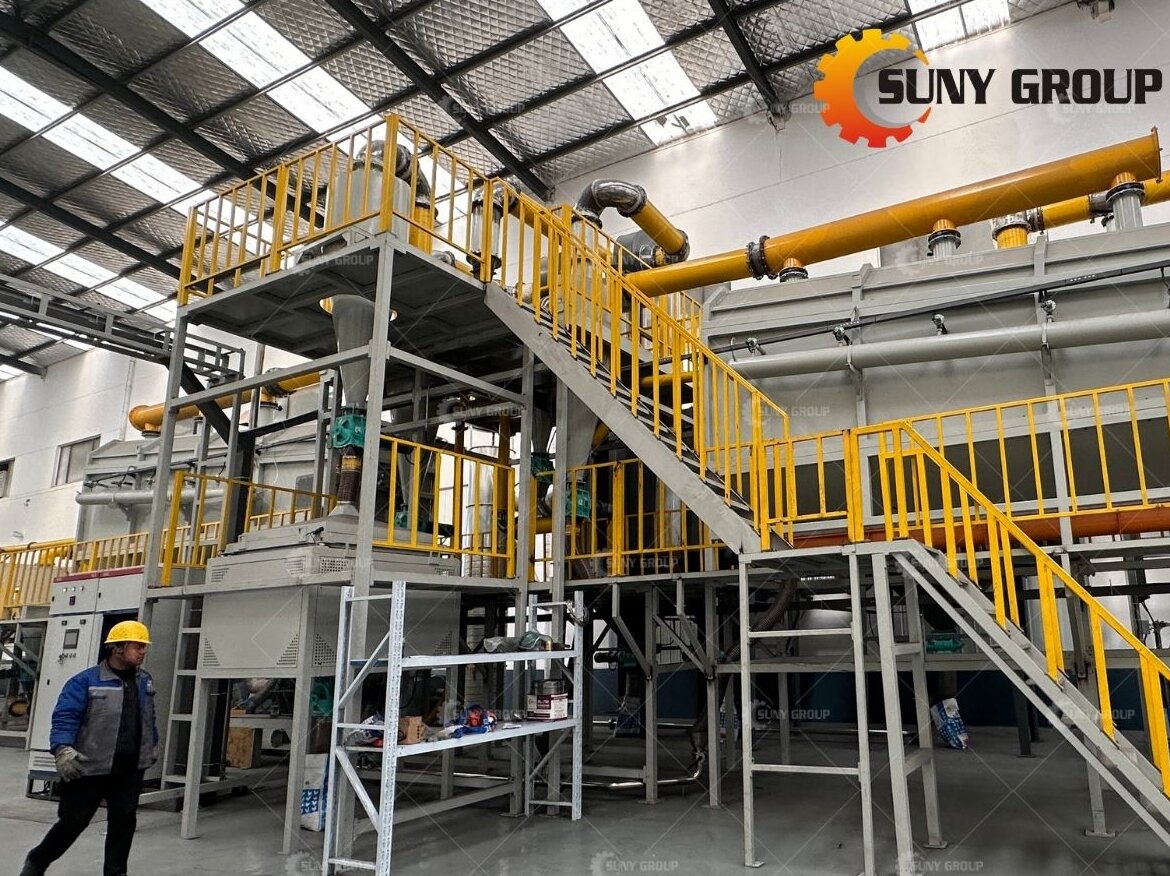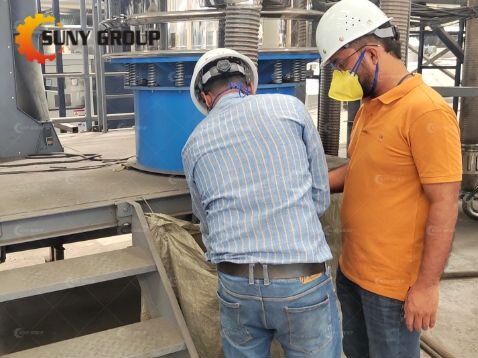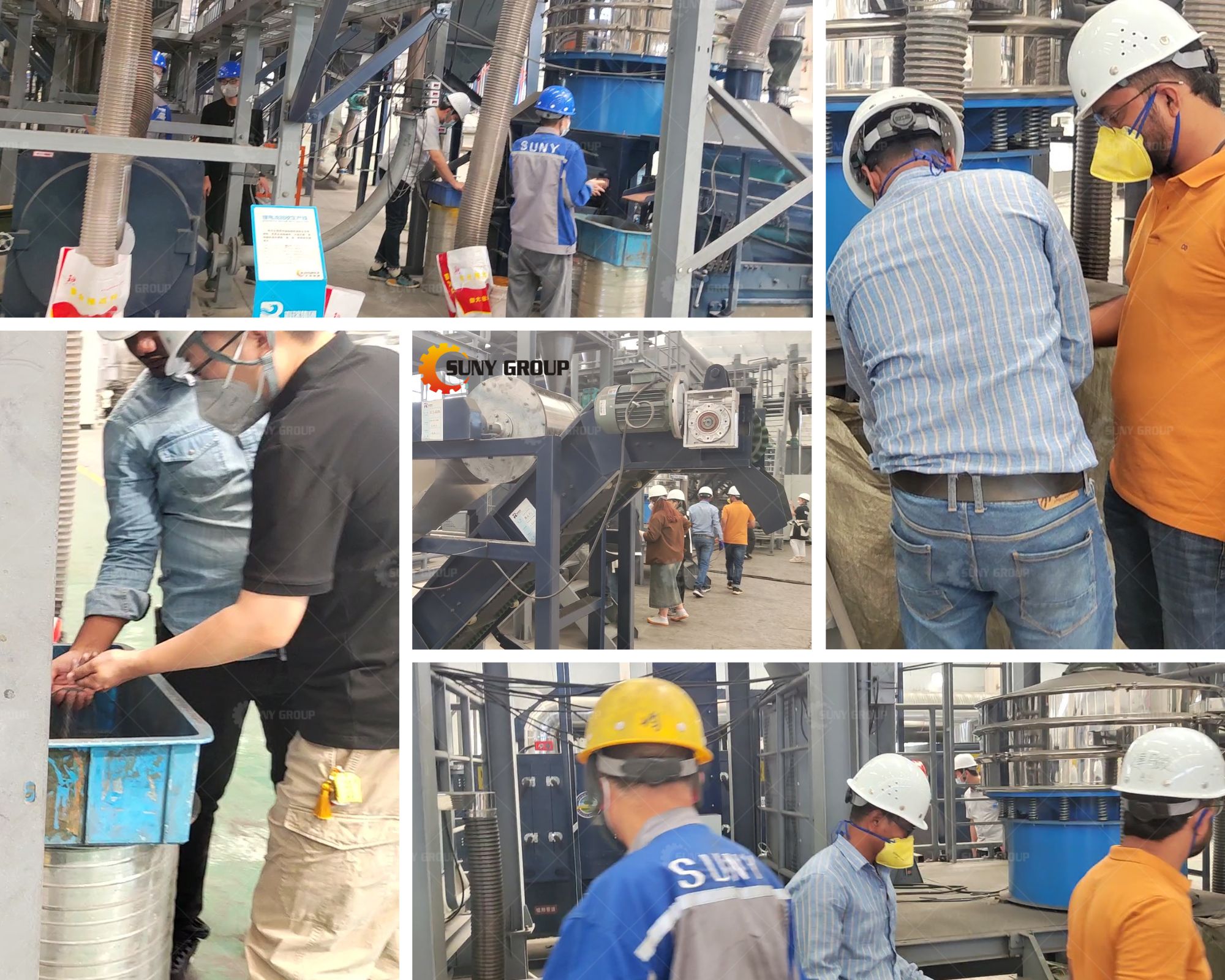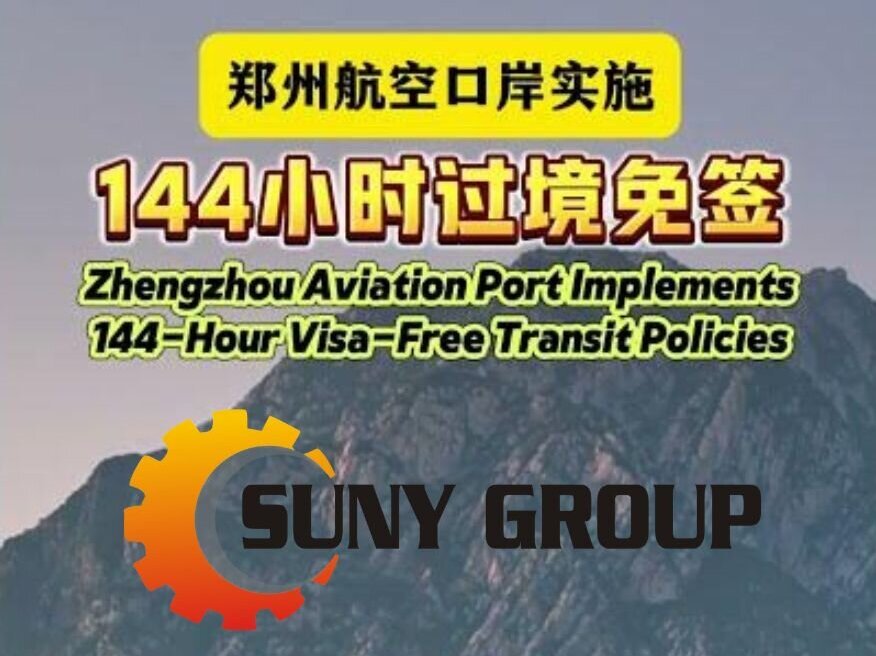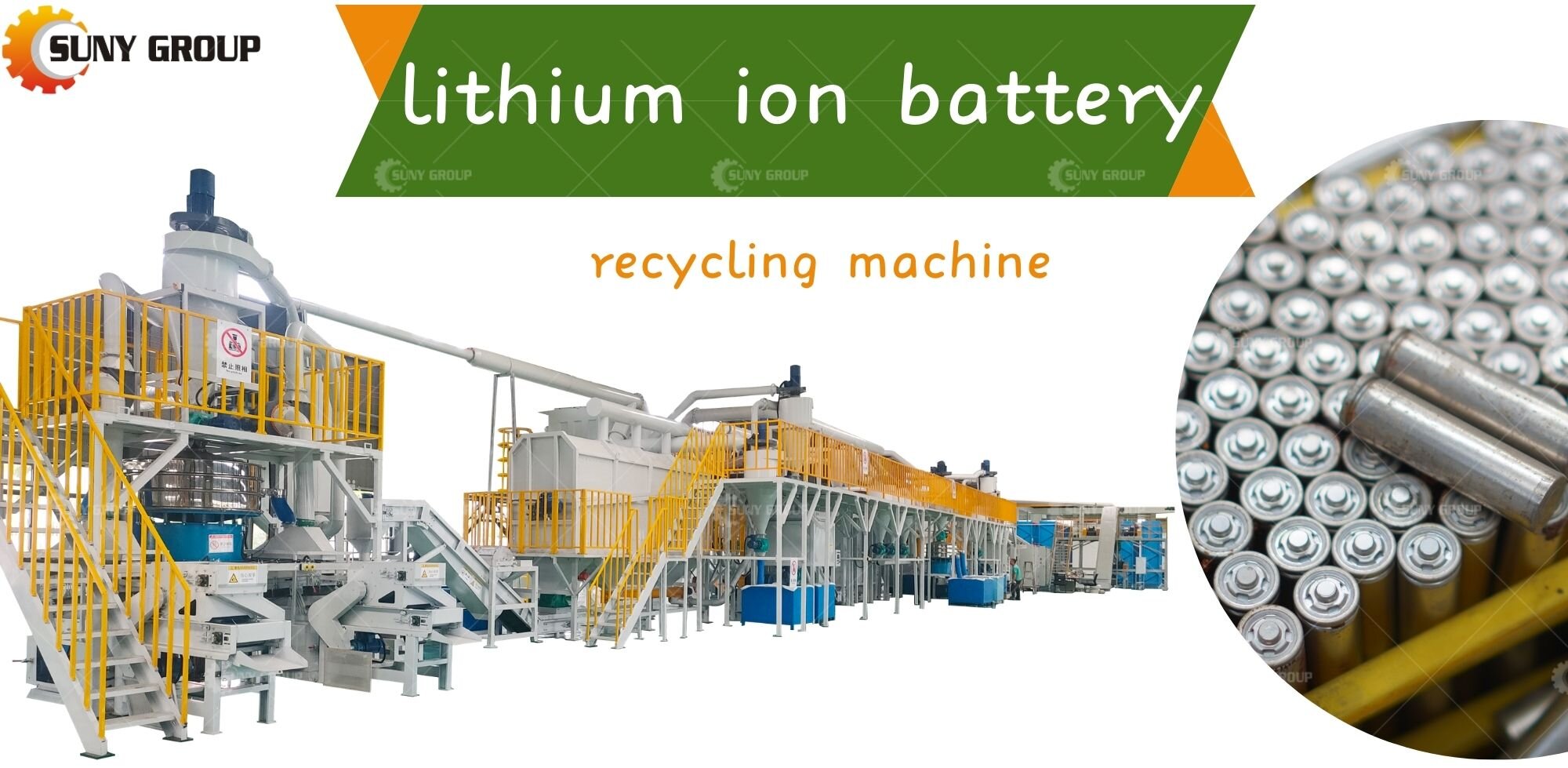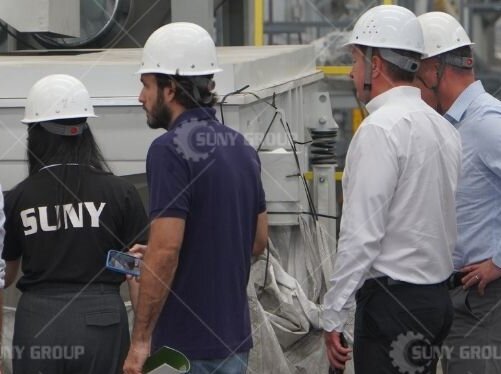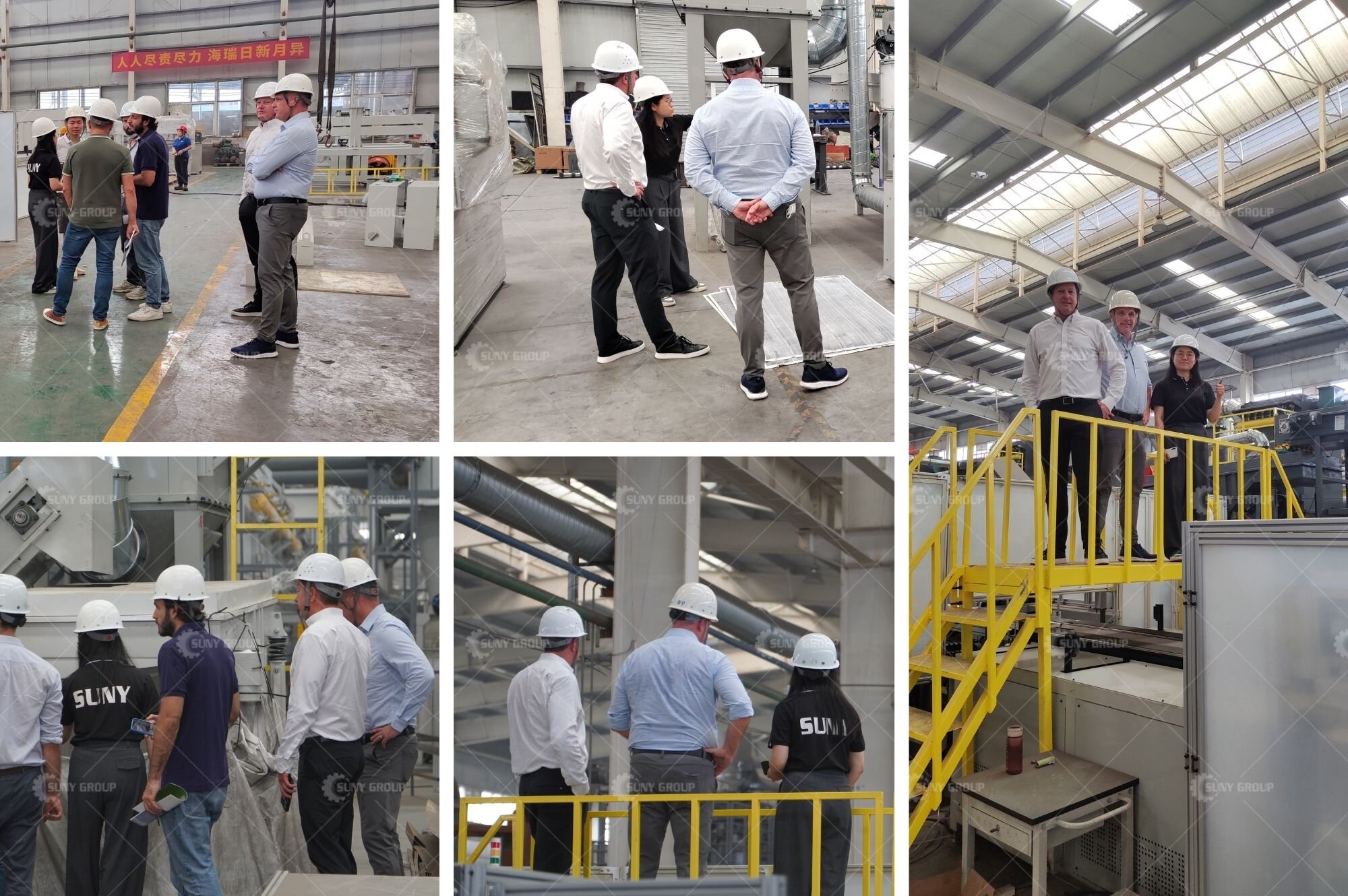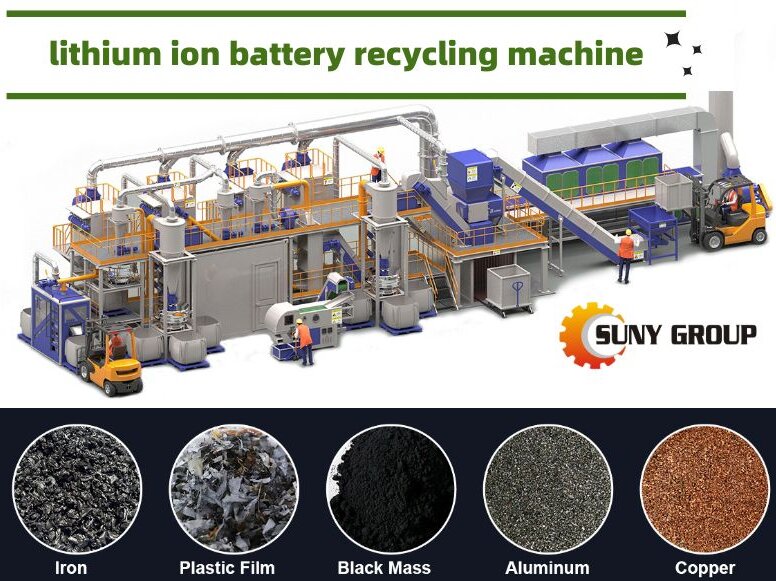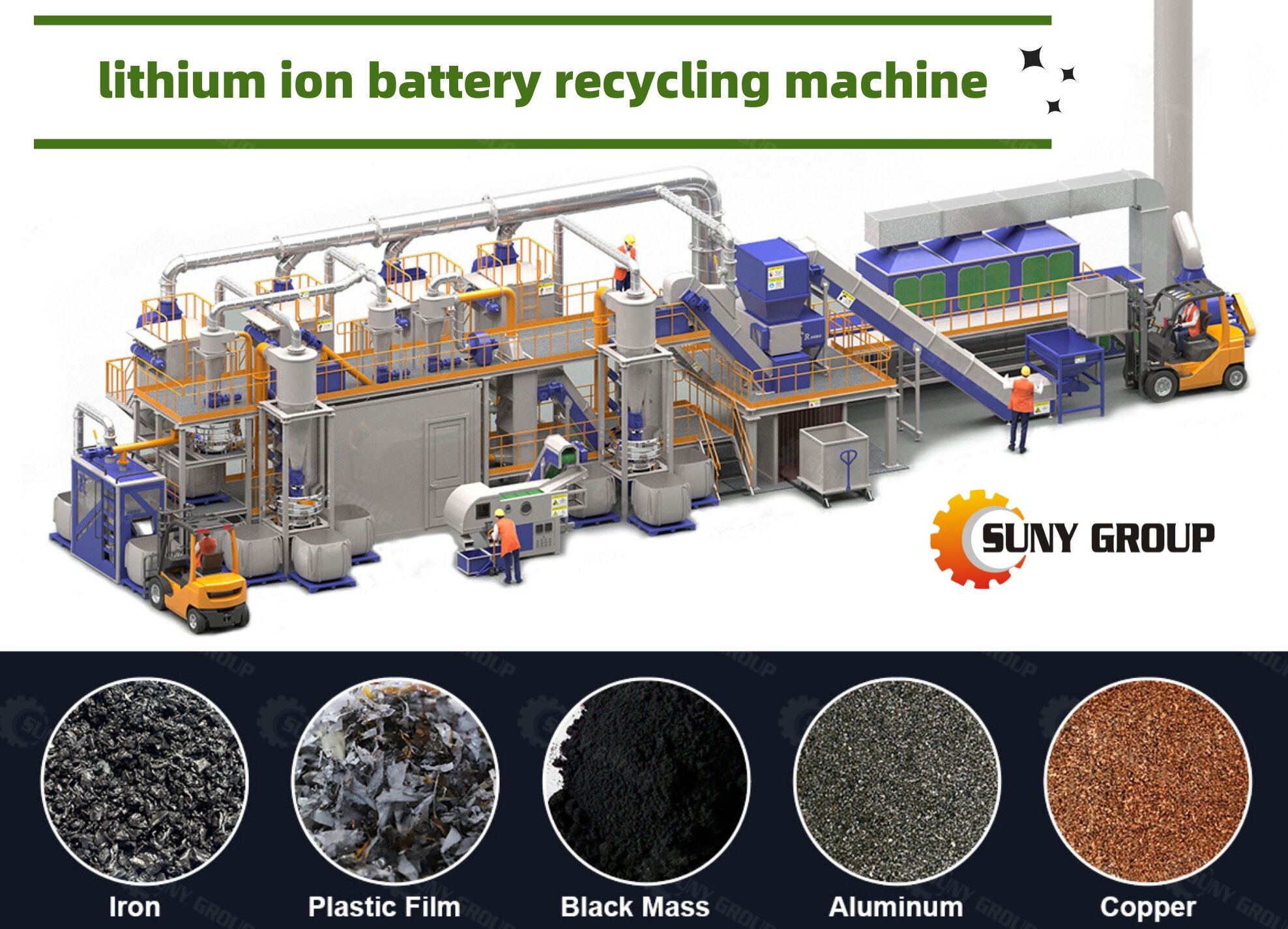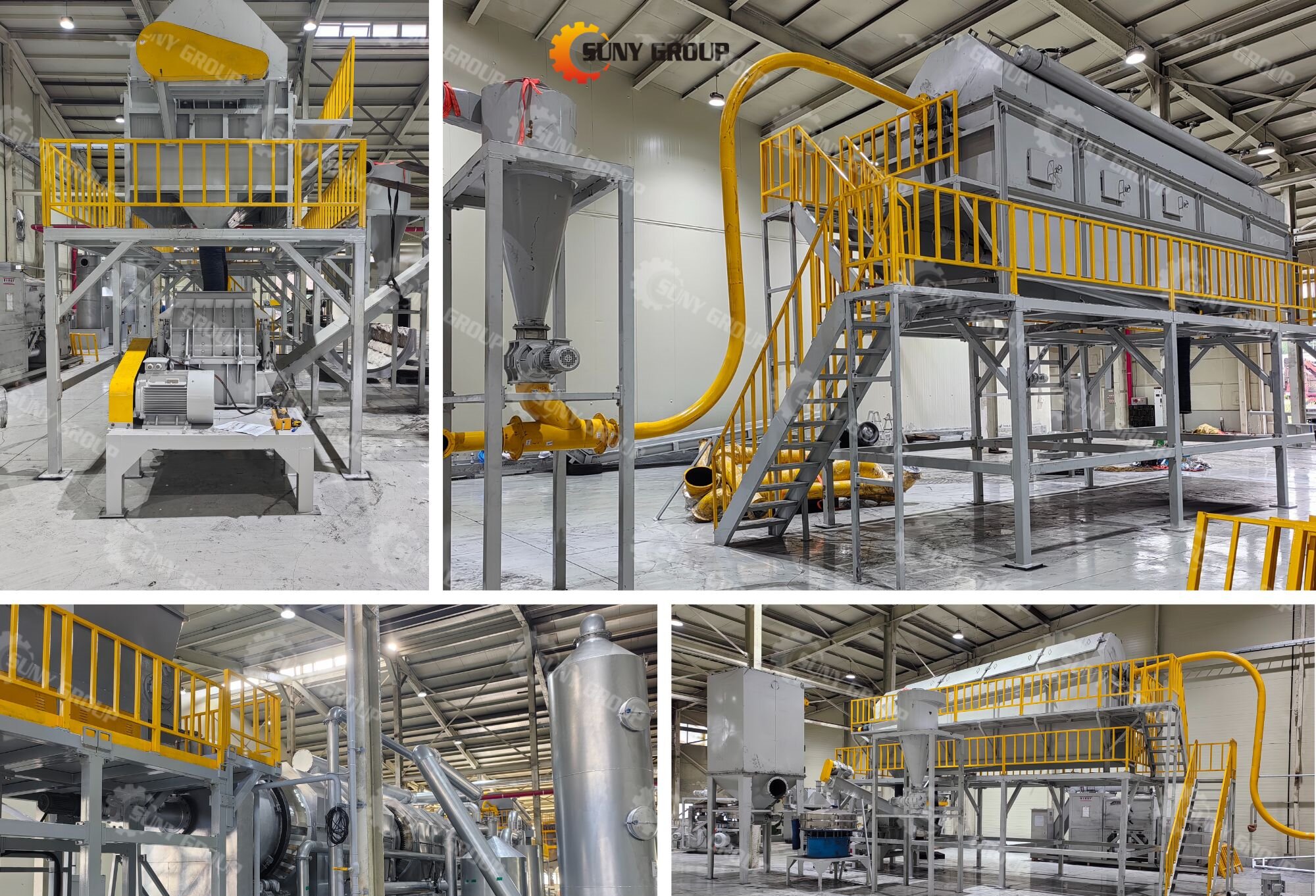With the popularity of electric vehicles and consumer electronic devices, the demand for lithium batteries has soared, triggering global discussions and actions on how to effectively recycle and reuse these key materials. However, although the lithium battery recycling industry has a bright future, what are the profits and challenges behind it? The global lithium battery recycling market has experienced rapid growth in the past decade. According to industry analysis, global electric vehicle sales will reach a record high in 2023, driving the demand for high-efficiency energy-density lithium batteries. This growth is not only driven by the increasing popularity of consumer electronic devices, but also part of the electric transportation revolution. Among them, the United States, Europe, Japan, South Korea and China are the main countries for lithium battery consumption and recycling.
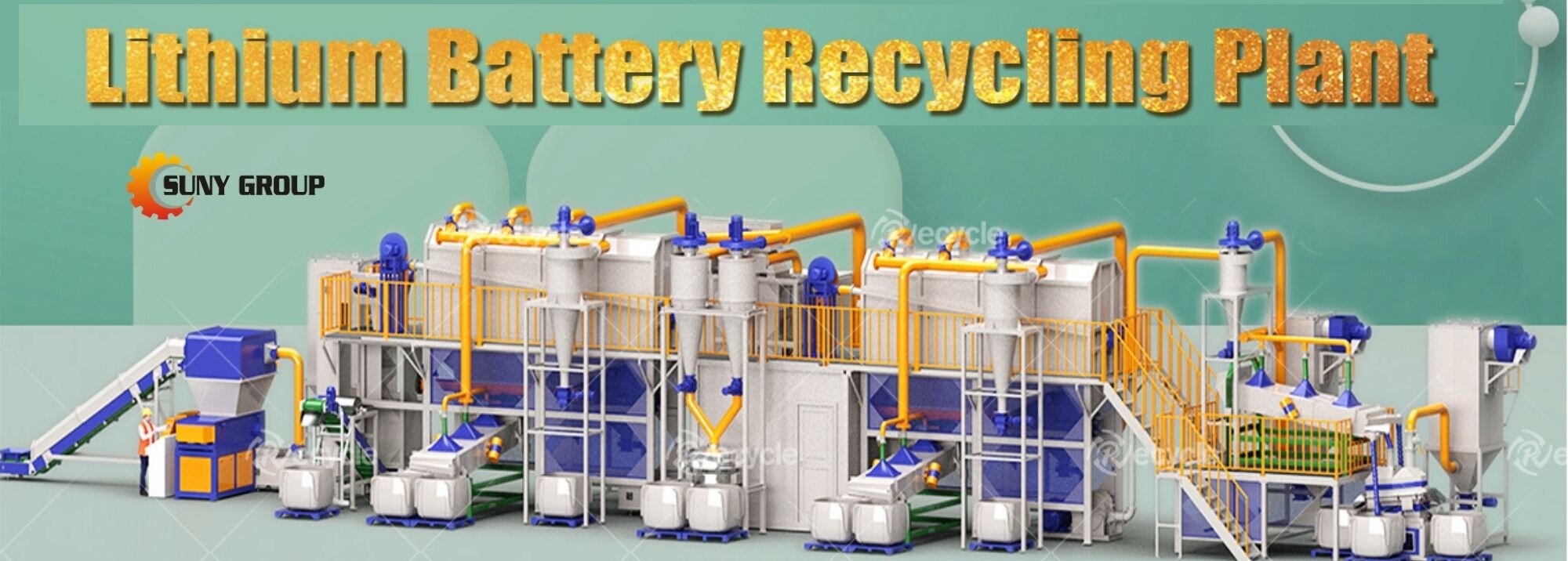
lithium ion battery recycling machine
The profits of lithium battery recycling are affected by technical challenges, market supply and demand fluctuations, and strict policies and regulations. Different recycling technologies have different costs and efficiencies. Traditional methods are costly and limit competitiveness, while emerging technologies face equipment and energy cost challenges. Market demand and price fluctuations for materials such as lithium, cobalt, and nickel directly affect the profit expectations of recycling companies, while strict environmental laws and regulations increase the costs of companies and limit the space for technological development.
The working process of Suny Group’s lithium ion battery recycling machine usually includes the following key steps: First, the used lithium batteries are put into the recycling machine for preliminary physical sorting and processing, which includes removing the outer shell and separating the internal components of the battery. Secondly, the battery components undergo a crushing and pulverizing process to break them into smaller fragments for subsequent processing. Then, these fragments are screened and graded to separate particles of different sizes and materials. Finally, through technologies such as magnetic separation and gravity sorting, the metal and non-metal materials are further separated, so that valuable materials such as lithium, cobalt, and nickel can be efficiently recovered and utilized.

Our services cover the world, and we warmly welcome customers from all over the world to contact us. No matter where you are, we will wholeheartedly provide you with the best quality products and services to meet your needs. If you are interested in our lithium battery recycling products or have any questions, please feel free to contact us. Let’s discuss the profits and technologies of the lithium battery recycling industry with Suny Group!
